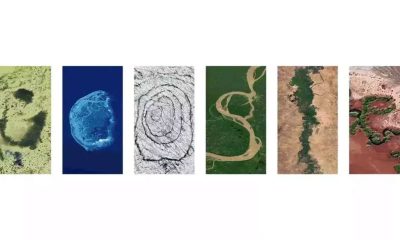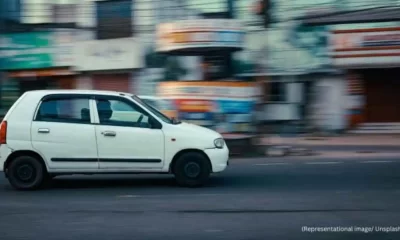[vc_row][vc_column][vc_column_text]Wednesday’s (November 15) Google doodle pays tribute to the first woman advocate of India, Cornelia Sorabji, on her 151st birthday.
Besides being the first woman Indian lawyer, she had lot more ‘firsts’ to her credit: the first woman to practice law in India and also in Britain, the first woman to go to Bombay University and the first Indian to study in Oxford University and the first woman to be allowed to study law at that university.
Cornelia Sorabji was born in India in 1866 to a Parsi Christian. She was one of nine children of Reverend Sorabji Karsedji and his wife, Francina Ford, who had been adopted and raised by a British couple.
She got the fame due to her years after she passed away. Sorabji was awarded her degree from Oxford after 30 years of passing it. The Oxford college – Somerville College – today offers a law scholarship named after her for aspiring Indian scholars. Last year, on her 150th birthday, the Somerville College had inaugurated the scholarship at a celebration held to mark her birth anniversary. Sorabji’s bust was unveiled at Lincoln Inn, one of the most celebrated body of judges and lawyers in 2012. However, it is said that the Supreme Court of India had rejected such an offer to place Sorabji’s bust in the apex court.
Cornelia Sorabji was one of the pioneers for opening doors of law education and practice for women in India. She could have achieved further heights if not for the regressive norms of Indian society. The scenario is definitely changing for the better, but the change is rather slow. From Leila Seth becoming the first woman to be appointed as Chief Justice to a state high court in 1991 to women heading the four major and older high courts today, the picture is improving. However, the difference between male and female judges in India is huge. They just make up a little more than 10 percent of the total strength.
The stories also have it that many male senior advocates took potshots at Sorabji questioning her aptitude. However, she was determined to make a dent in this male bastion. She went against all odds to finish her education. She chose to study law at a time when not just India but countries like Britain were also reluctant towards higher education of women. Sorabji, who was a bright student, was entitled to a scholarship for higher studies in England, which she was denied.
She then had to write to the National Indian Association. She got the support to get going as famous writers such as Adelaide Manning, Florence Nightingale and Sir William Wedderburn came forward to fund her. Sorabji, who went to the Oxford University, was not even awarded her degree even after passing it.
She took up law as her career at a time when women were not even allowed in the profession. Sorabji was not allowed to be a barrister because women were not allowed to practice in India. She was not recognized as an advocate in the Allahabad High Court even after passing the exams for it, until 1923, when the laws finally changed. However, this did not stop Sorabji from practicising law as she became a legal advisor to the Indian government. She took up the case of “purdahnashins” of India—women who were not allowed to talk to men outside their family. These women, who were child brides and widows could not protect their property even after being entitled to it because they could not appoint any lawyer for themselves as all of them were men. Sorabji came as a saviour for these women. Sorabji, in her career, fought for over 600 women and children and it is said that she did it pro bono.
The Google doodle was created by illustrator Jasjyot Singh Hans. The doodle depicts Sorabji in front of the Allahabad High Court. Google made this doodle to celebrate and appreciate Cornelia “for breaking that first glass ceiling and for her persistence in the face of great adversity”.[/vc_column_text][/vc_column][/vc_row]


 LATEST SPORTS NEWS12 hours ago
LATEST SPORTS NEWS12 hours ago
 India News12 hours ago
India News12 hours ago
 India News13 hours ago
India News13 hours ago
 India News12 hours ago
India News12 hours ago
 Latest world news6 hours ago
Latest world news6 hours ago
 India News5 hours ago
India News5 hours ago















